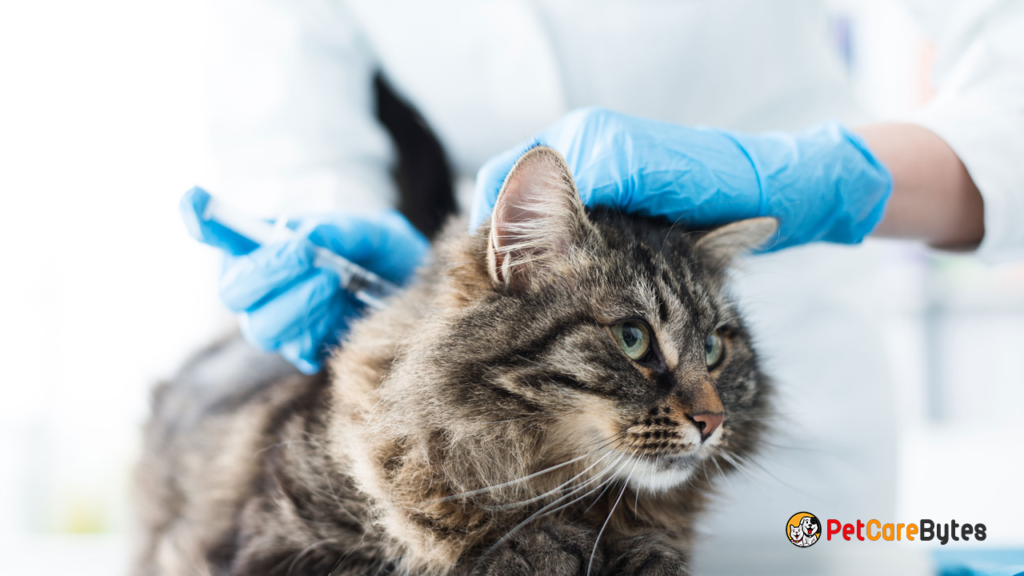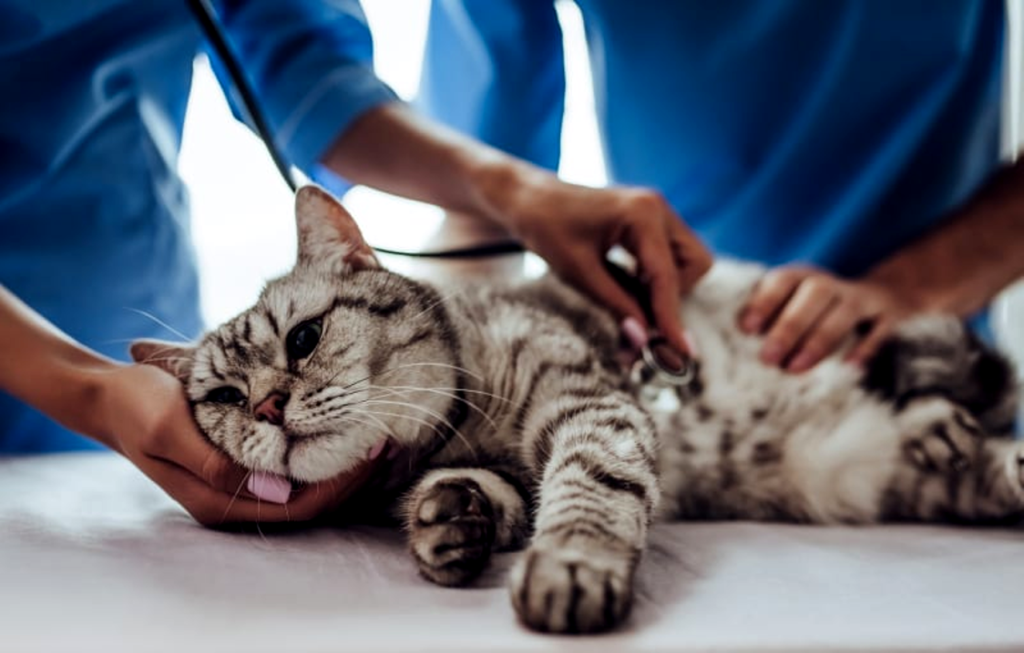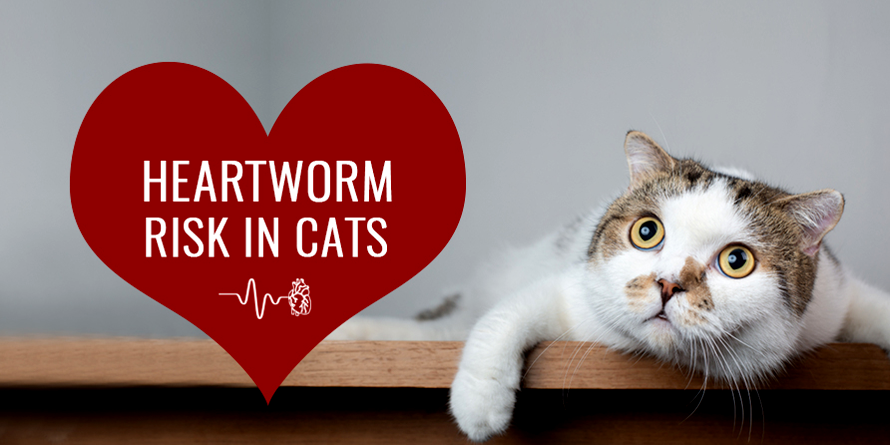Heartworm disease is commonly associated with dogs, but the threat extends to our feline friends as well. As responsible pet owners, it is crucial to comprehend the intricacies of this ailment to safeguard the health and well-being of our beloved cats.
Read More: How to Groom a Cat with Dandruff?
Contents
Heartworm Disease in Cats

Causes and Transmission
Mosquito as the Vector
Mosquitoes, the notorious carriers of various diseases, play a pivotal role in transmitting heartworms to cats. When an infected mosquito bites a cat, it transfers microscopic heartworm larvae into the bloodstream, initiating a potentially harmful journey within the feline host.
Life Cycle of Heartworms
Understanding the life cycle of heartworms is essential. From larvae entering the bloodstream to maturing into adult worms that reside in the heart and lungs, this process is complex. Each stage presents unique challenges and potential health risks for our feline companions.
Signs and Symptoms
Early Indicators
Recognizing the subtle signs of heartworm disease in its early stages is crucial for timely intervention. Cats may exhibit mild symptoms such as coughing, lethargy, or decreased appetite. Paying attention to these early indicators can make a significant difference in treatment outcomes.
Advanced Symptoms
As the disease progresses, cats may experience more severe symptoms, including difficulty breathing, weight loss, and even fainting. Immediate veterinary attention is imperative when these advanced signs manifest.
Diagnosis
Veterinary Testing
Regular veterinary check-ups that include heartworm testing are paramount in diagnosing the disease. Blood tests can detect the presence of heartworm antigens, enabling early detection and intervention.
Importance of Regular Check-ups
Preventive care is key. Regular veterinary check-ups not only aid in early diagnosis but also provide an opportunity for pet owners to discuss preventive measures with their veterinarians.
Treatment Options

Medications
If a cat is diagnosed with heartworm disease, various medications can be prescribed to alleviate symptoms and eliminate the parasites. However, treatment can be challenging, and prevention remains the best course of action.
Prevention Measures
Preventing heartworm disease is more effective and less stressful than treating an active infection. Monthly preventive medications and lifestyle adjustments, such as minimizing outdoor exposure during peak mosquito activity, can significantly reduce the risk.
Risks and Complications
Impact on Feline Health
Heartworms can cause severe damage to a cat’s heart and lungs, leading to long-term health issues. Understanding the potential impact is crucial for pet owners to grasp the severity of the disease.
Potential Fatalities
Untreated heartworm infections can result in fatal consequences for cats. The risk underscores the importance of proactive measures to protect feline companions from this hidden threat.
Importance of Prevention
Year-Round Protection
Heartworm prevention should be a year-round commitment. Consistent use of preventive medications ensures continuous protection, even during seasons with lower mosquito activity.
Lifestyle Adjustments for Cats
Simple lifestyle changes, such as using mosquito nets or keeping cats indoors during peak mosquito hours, can significantly contribute to reducing the risk of heartworm infection.
Common Misconceptions

Myths About Heartworms
Dispelling common myths is essential for accurate information dissemination. Addressing misconceptions, such as cats being immune to heartworms or indoor cats being safe, helps create a more informed pet-owning community.
Clarifying Misinformation
Providing correct information to counter prevalent misconceptions ensures that pet owners can make informed decisions about their cats’ health. Clarity is key in dispelling misinformation surrounding feline heartworm disease.
The Emotional Toll on Pet Owners
Coping with a Sick Cat
Discovering that a beloved cat has heartworm disease is emotionally challenging for pet owners. Providing emotional support for both the cat and the owner becomes crucial during this difficult time.
Emotional Support
Seeking emotional support from veterinary professionals or support groups can aid pet owners in navigating the emotional toll of caring for a cat with heartworm disease. Understanding that emotional well-being is as vital as physical health is essential.
Insights from Veterinarians
Professional Advice
Veterinarians play a crucial role in guiding pet owners in preventing and managing heartworm disease. Following professional advice and recommendations ensures the best possible care for feline companions.
The Role of Pet Owners
Collaboration between veterinarians and pet owners is key. Establishing a partnership that prioritizes preventive measures and regular check-ups contributes to the overall well-being of cats.
Case Studies

Real-life Experiences
Exploring real-life cases provides insights into the challenges faced by cats and their owners. These stories serve as valuable lessons for the broader pet-owning community.
Lessons Learned
Reflecting on the experiences of cats affected by heartworm disease helps draw lessons that can inform future preventive measures and improve overall feline healthcare.
Spreading Awareness
Community Initiatives
Engaging communities in raising awareness about feline heartworm disease is crucial. Community initiatives, such as workshops and informational campaigns, can contribute to a more informed and proactive pet-owning population.
Social Media Campaigns
Leveraging the power of social media to spread awareness about feline heartworm disease ensures a broader reach. Engaging content and educational materials can encourage pet owners to take preventive actions.
Read More: Pet ID Microchip for Dogs & Cats
Conclusion
Recap of Key Points
Understanding the nuances of heartworm disease in cats is vital for responsible pet ownership. From prevention to early detection, each aspect contributes to the overall well-being of our feline companions.
Urgency of Awareness
Emphasizing the urgency of raising awareness becomes paramount. By collectively understanding and addressing the threat of heartworm disease, we can create a safer and healthier environment for our beloved cats.




















